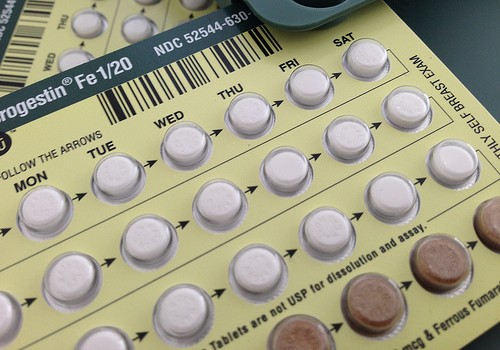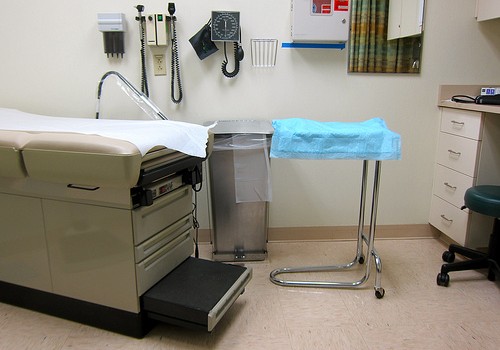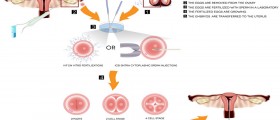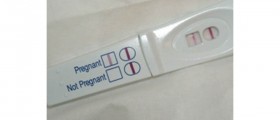
Age Doesn’t Affect Fertility
Make not mistake about it — age is the number one cause of infertility, and one that eventually catches up with all women and most men too. Between the ages of 20 and 24, a woman's chance of being infertile is only three percent. That rises to eight percent by her mid-thirties. When a woman reaches age 40, she is just as likely to be infertile as she is to be fertile. It is also important to consider the odds of experiencing a high-risk pregnancy later in life. There are many social benefits to delaying motherhood, but your twenties are still the best time to have a baby if you are taking a purely biological approach.
- Important notification about information and brand names used in this slideshow!
- Photo courtesy of Jodi Womack by Flickr : www.flickr.com/photos/jodiwomack/6217578512/
- www.fitnessmagazine.com/health/pregnancy/fertility/fertility-facts-misconceptions/
- http://www.forbes.com/sites/alicegwalton/2011/06/20/getting-pregnant-top-10-fertility-myths-and-facts/
- http://www.babyzone.com/getting-pregnant/10-myths-about-trying-to-conceive_88911
- http://infertility.about.com/od/tryingtoconceive101/ss/fertility_facts_myths.htm

Poor Nutrition Lowers Your Chances Of Conceiving
Have you heard that poor nutrition lowers your odds of conceiving? This is absolutely true. Women who have a healthy Body Mass Index (BMI) are more likely to get pregnant quickly than those who are either underweight, overweight, or obese. Women who are not at a healthy weight are also more likely to face pregnancy complications. It's not just weight that matters, though. Women who are at a healthy weight but suffer from nutritional deficiencies are also more likely to encounter trouble conceiving — and once again, this also affects the health of their pregnancy if they do conceive. Weight and nutrition are excellent topics to discuss with your OBGYN during a preconception health checkup.
- Important notification about information and brand names used in this slideshow!
- Photo courtesy of FaceMePLS by Flickr : www.flickr.com/photos/faceme/2792257577/

Stress Reduces Fertility
"Just relax, and it will happen" is NOT a nice thing to hear if you have been trying to conceive unsuccessfully, and especially if you have already been diagnosed with infertility. Relaxing does not make medical causes of infertility go away. Extreme stress can, however, delay ovulation in some cases. Women who are facing a lot of stress always benefit from practicing relaxation techniques and from seeing a therapist — this is true for women whose stress is due to infertility just as it is true for those who are under pressure at work or have other stressors.
- Important notification about information and brand names used in this slideshow!
- Photo courtesy of Aimee Heart by Flickr : www.flickr.com/photos/soundlessfall/5227391434/

Taking Birth Control Pills Will Make It Harder To Get Pregnant
Taking oral contraceptives makes it a whole lot harder to get pregnant — that is, of course, the whole point. Pill users who forget a pill here and there or who take their pill at different times every day can still manage to get pregnant, and even women who follow the instructions on the pill's package insert to the letter sometimes experience contraceptive failure. Combined oral contraceptives do not affect a woman's fertility in the long term however, and a history of pill use will not make it harder for you to get pregnant. A quick return to fertility is actually one of the great benefits of the pill, and many women ovulate the very cycle after discontinuing pill use.
- Important notification about information and brand names used in this slideshow!
- Photo courtesy of lookcatalog by Flickr : www.flickr.com/photos/lookcatalog/8602762713/

To Get Pregnant Quickly, You Should Have Sex Every Day
Although some research suggests that couples who have sex every day do in fact have higher chances of conceiving, it's still the sex that a couple has during the woman's fertile window that matters. Sperm cells can survive inside the female reproductive tract between five and seven days, which means that the week or so before ovulation is expected should be considered the best timing for sex. Using ovulation tests or calendars will give women a good idea about the cycle day on which they generally ovulate. Ovulation tests may not give you advance warning (since they tell you that ovulation is about to happen right there and then), but will still help right this month: the day of ovulation itself is very fertile indeed.
- Important notification about information and brand names used in this slideshow!
- Photo courtesy of you me by Flickr : www.flickr.com/photos/httpwwwyoumeflickrcom/8096549325/

It's Probably The Woman's Problem
A third of all cases of infertility can be attributed solely to male issues, while another third the cause of infertility lays only with the female partner. A combination of male and female fertility problems and unknown causes of infertility make up the remaining third. Though some societies still tend to blame women when a couple is not able to get pregnant naturally, statistics very clearly show that infertility affects both genders equally. Abnormal sperm production and delivery problems are the most common causes of male infertility. Ovulation disorders, uterine or cervical abnormalities, and blocked fallopian tubes are the most frequent causes of infertility in women.
- Important notification about information and brand names used in this slideshow!
- Photo courtesy of Klearchos Kapoutsis by Flickr : www.flickr.com/photos/klearchos/3824371065/

Infertility Can Always Be Cured By Treatment
Artificial reproductive technologies have made it possible for countless couples who were facing infertility to become biological parents. Still, resist the temptation to think that you can "always have intrauterine insemination or IVF" if trying to conceive naturally does not give you the result you were hoping for. Fertility treatments are responsible for "miracles" on a daily basis, but they do not come with guaranteed success. IVF success rates for women over 42 do not exceed nine percent, for instance and those that do have higher rates of birth defects and miscarriages. The moral of the story? Don't assume that fertility treatments can make every woman pregnant, and be prepared for the possibility of failure before you commence ART.
- Important notification about information and brand names used in this slideshow!
- Photo courtesy of Jennifer Morrow by Flickr : www.flickr.com/photos/donotlick/5936305758/

Alcohol Boosts Your Chances Of Pregnancy
Alcohol boosts your chances of pregnancy? Well, we have no idea who came up with that urban myth, but it is certainly not true. Alcohol consumption reduces fertility in both men and women. The more you drink, the more likely you are to become sub-fertile. Women who drink at a time when they might already be pregnant (between ovulation and menstruation) also place their potential embryo at risk. The early weeks of pregnancy are the most crucial, and drinking at this point comes with a much higher risk of birth defects and possible miscarriage. Of course, expectant mothers should avoid alcohol throughout their pregnancies because no amount of alcohol has been proven to be safe during pregnancy.
- Important notification about information and brand names used in this slideshow!
- Photo courtesy of Robert Couse-Baker by Flickr : www.flickr.com/photos/29233640@N07/6820671197/

If You're Young And Healthy, You Can't Be Infertile
Age may be the most common cause of infertility, but that does not mean that you cannot have a fertility problem if you are young and seemingly healthy. Women in their twenties and thirties can definitely suffer from ovulation disorders, endometriosis, Polycystic Ovary Syndrome or blocked fallopian tubes. Young men are also affected by low sperm count or problems with the shape and speed of sperm, and they can have sperm delivery problems as well. Being young and apparently healthy does not make you exempt from infertility, then. It does, however, give you more time to seek fertility problems — and give you better odds of success with artificial reproductive techniques in many cases.
- Important notification about information and brand names used in this slideshow!
- Photo courtesy of Nutch3 by Flickr : www.flickr.com/photos/nutch3/5835377911/

Life Can't Be Happy Without Children
Infertility comes as a huge shock when you have been trying to conceive for a while and had high hopes of holding a baby in your arms soon. Many couples do everything within their power to realize their dream of being parents. Adoption and fertility treatments are great options for many couples and singles who would love to raise children. The biggest fertility myth of them all might be that life just can't be happy, meaningful and complete without children though. It can, and every couple who is newly diagnosed with infertility should at least consider the option of not pursuing fertility treatments or adoption.
- Important notification about information and brand names used in this slideshow!
- Photo courtesy of Mark Probst by Flickr : www.flickr.com/photos/schani/13859439/


























Your thoughts on this
Loading...